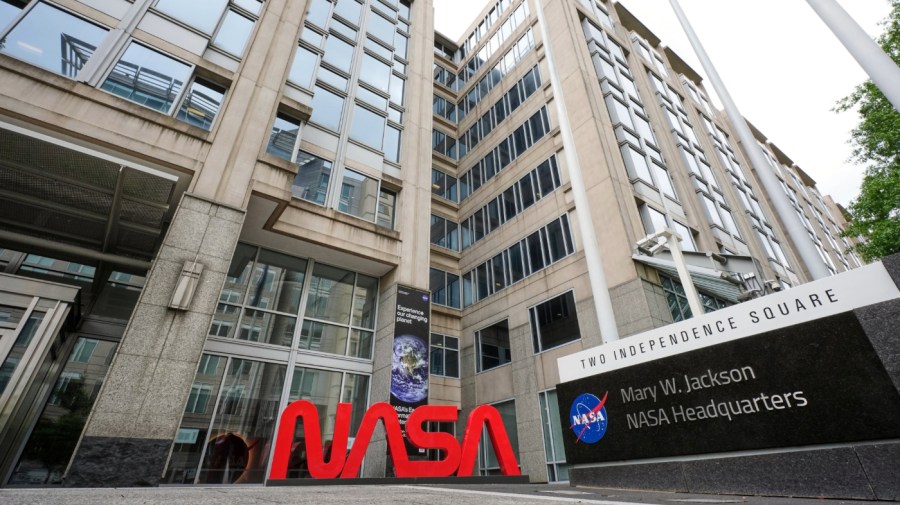]
The social media-driven feud between President Donald Trump and SpaceX CEO Elon Musk may have simmered down a bit, with the rhetoric cooling and Musk even deleting some of his ill-considered posts about Trump from X and then apologizing for them.
But the shockwaves generated by the tit-for-tat insults and threats still reverberate through NASA and the commercial space sector.
When Trump threatened to pull all of SpaceX’s government contracts and Musk responded by threatening to decommission the Dragon spacecraft, an apocalyptic scenario that would have cripped NASA loomed. Fortunately, both men have since backed off.
Even so, according to the Washington Post, NASA and the Defense Department are quietly urging commercial space companies to hurry the development of hardware that can compete with what SpaceX has to offer.
Encouraging competition with SpaceX is sound policy regardless of the relationship between Trump and Musk. However, that competition is months, if not years, in the future.
The next flight of the Boeing Starliner, which failed so spectacularly in 2024, will be early next year at the earliest. The Blue Origin New Glenn, an answer to the SpaceX Falcon family of rockets, may launch once more this year and is a long way from achieving Falcon-level launch cadence.
It is in Trump’s and Musk’s interests, and that of the American space effort, that both men repair their relationship and move on.
One of the issues that drove Trump and Musk apart was Trump’s abrupt and inexplicable withdrawal of the nomination of Jared Isaacman, a billionaire entrepreneur and private space traveler, for NASA administrator. Musk had championed Isaacman, who is well regarded in the aerospace community, and took it to heart when Trump changed his mind about his own nominee.
The resulting leadership vacuum at NASA is being filled by Congress. The Senate Commerce Committee, chaired by Sen. Ted Cruz (R-Texas), has offered its own ideas for a NASA budget. The Senate Commerce document is at odds with the White House proposal in one important aspect. Whereas the Trump budget eliminates the Space Launch System after Artemis III and the Lunar Gateway, Senate Commerce would retain the massive, expensive rocket at least through Artemis V and would build the Gateway to support future Artemis missions. A NASA administrator such as Isaacman would be able to argue for the White House’s approach.
As for Isaacman, some people in the MAGA world, no doubt stung by the near-universal outrage sparked by his treatment at the hands of the White House, have started to trash the former nominee in the media.
A recent Daily Caller story quoted unnamed White House officials accusing Isaacman of not only giving money to Democrats but of supporting diversity, equity and inclusion initiatives at his companies and in his private spaceflights. But both of these facts were known when Isaacman was nominated.
According to the story, the officials said, “Isaacman would have been a black spot on an administration otherwise filled with Republican Trump supporters or, at least, individuals like Robert F. Kennedy Jr. who backed the president prior to the election.”
To hear these unnamed sources talk, Isaacman is no better than left-wing House members Rep. Alexandria Ocasio-Cortez (D-N.Y.), Rep. Ilhan Omar (D-Minn.) and their Squad.
It should be noted that even if Isaacman wanted to impose DEI policies at NASA, he couldn’t because of Trump’s executive order prohibiting it across the federal government.
Isaacman posted to X in his own defense: “I am a moderate and donated to both parties for different reasons … my largest contribution was to President Trump — because I support many of his policies. I definitely did not like the direction this country was going over the last 4 years.”
He went on to state, “I have never spoken against the President. I have never voted against him.”
It sounds like Isaacman is very loyal to Trump, remarkable under the circumstances. The suggestion of disloyalty is spurious and against the White House’s interests.
Isaacman’s situation could provide the basis of a rapprochement between Trump and Musk. Musk has already apologized to the president for some of his posts on X, particularly the one suggesting that Trump is named in the Department of Justice’s files on Jeffrey Epstein.
But the president should admit fault as well. He was deceived by some of his staff about Isaacman’s character. If it is not too late, he should reverse himself a second time and send his fellow billionaire’s name back into nomination.
NASA, the U.S., and the Trump-Musk partnership would gain as a result.
Mark R. Whittington, who writes frequently about space policy, has published a political study of space exploration entitled “Why is It So Hard to Go Back to the Moon?” as well as “The Moon, Mars and Beyond,” and, most recently, “Why is America Going Back to the Moon?” He blogs at Curmudgeons Corner.








